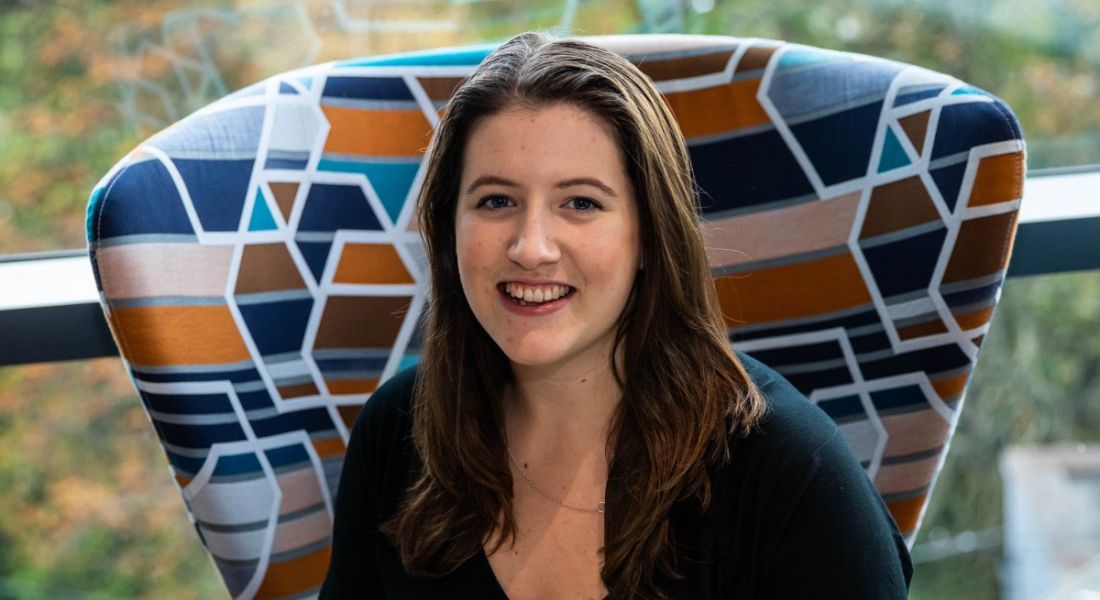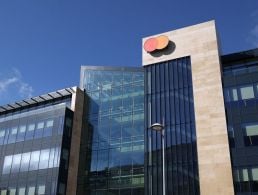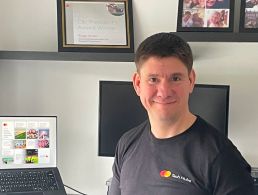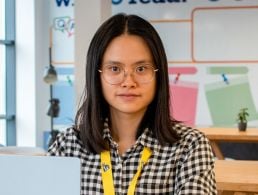Sometimes, the promises of stimulating work and invaluable experience in a company’s graduate programme turn out to be hot air. Luckily, this was not the case for Mastercard’s Sarah Kingston.
Attracting graduates is vital for any tech company. It is an easy way to create a pipeline and circumvent issues with the so-called ‘war for tech talent’.
These firms will put a huge amount of energy into projecting an image of being the best place to start your career, but the reality may not rise to these promises. At this stage, prospective interns are aware enough of this phenomenon to moderate their expectations. This is exactly what Sarah Kingston, an associate software engineer of commercial products at Mastercard, did when entering the company’s graduate programme.
It was, fortunately, an unnecessary exercise. Mastercard’s graduate programme exceeded her expectations for many reasons. We caught up with Kingston to see what drew her to the payments giant and to hear about her graduate programme experience.
What did you study in college?
I studied computer engineering in Trinity College Dublin. During my time in university, I was also selected for the year-long exclusive Unitech programme aimed at equipping third-level technology students with complementary business skills, from innovation management to financial acumen and strategy development.
As part of this programme, I had the opportunity to study abroad in Milan, Italy, for a semester and to complete an internship at Mastercard. I feel very lucky to have had this opportunity both to widen my learnings and to experience life in a different culture.
Are you now working in your desired industry?
I was really unsure about what I wanted to do for a long time, which is why I chose engineering. Personal interest combined with computers drove me towards technology and software development. As it’s such a fast-paced environment with lots of different areas to explore, I was inspired to pursue a career in technology.
I worked part-time during university, teaching children to code. I also volunteered for Mastercard’s CoderDojo club during my internship there. I really enjoyed introducing children to the power of technology and helping them take their first ‘coding’ steps. The children’s excitement for technology fed my own passion for computer engineering.
What drew you to Mastercard when you were seeking work as a graduate?
Although I only joined the Mastercard graduate programme this September, it was my third time returning to the company. I knew what it was like to work at Mastercard in Dublin and had already built up a strong network of peers and colleagues.
My first experience with Mastercard was during my third year of studies at Trinity when Mastercard reached out about a mentoring programme it was running for female engineering students. My mentor took time to understand what I wanted to get out of the mentoring programme, tailoring our meetings to meet my goals, one of which was to be accepted on to the scholarship programme to study abroad. I think leaving Ireland gave me a broader perspective and helped me realise how this industry is changing the world in more ways than I could have ever imagined.
I then chose to undertake my internship with Mastercard. Through that, I got to work with some amazing people – everyone seemed so passionate about what they were working on, and about Mastercard as well. I remember asking the question that everyone asks: “Isn’t Mastercard just a credit card company?”
Yet I soon saw for myself that Mastercard is a technology company working on some really cool projects in payments security, APIs, and emerging technologies such as artificial intelligence, augmented reality and blockchain.
What expectations did you have before you began the programme?
My expectations were tempered, as every company sells itself telling potential graduates that we would be part of a team and given proper work to do. I think anybody starting a graduate programme has heard this before.
Mastercard is different; even as an intern I always felt part of my team. My team helped me get set up and within a couple of weeks, I was delivering work just like everybody else. The expectation is that you take responsibility for work and that you deliver.
As part of the graduate programme, I also got the opportunity to travel to Mastercard’s New York office to meet with fellow graduates from around the world. The two-week trip incorporated presentations from Mastercard’s senior leadership team, including a talk from Mastercard’s CFO, Martina Hund-Mejean, and a number of very useful training sessions on both Mastercard’s business and on developing soft skills such as broaching difficult subjects with your manager and understanding different working styles.
Can you describe a typical day in your role?
A typical day for me normally starts with a daily stand-up in the morning, then some work, which might be code reviews, development or helping build out test cases. Lunch is normally a mix of chat and table tennis, which is then followed by collaborative meetings to brainstorm or catch up on projects.
After work, there will often be a sports and social event, or we help to run our in-house CoderDojo for kids. No matter what your hobbies are, there will be a club to suit your interests here. It’s a great way of meeting people outside my team and getting to know more of the company.
How do your responsibilities compare to more experienced employees’?
My responsibilities are similar to those of more experienced employees in that I’m responsible for my work from start to end, just as anybody else would be. It’s smaller pieces of work in the same timeframe and I’m provided with the support I need as required. It’s great that everybody is so open and I can ask questions of anybody, and, if I’m stuck, can get more direction from my team.
Why should someone apply to the graduate programme at Mastercard?
This programme offers more than just an opportunity to learn, but to challenge yourself and explore technologies in the payments space that will help better the world through faster, more secure payment solutions.




